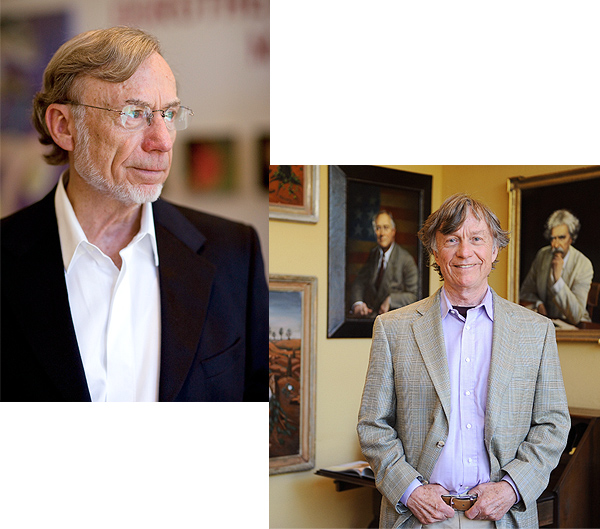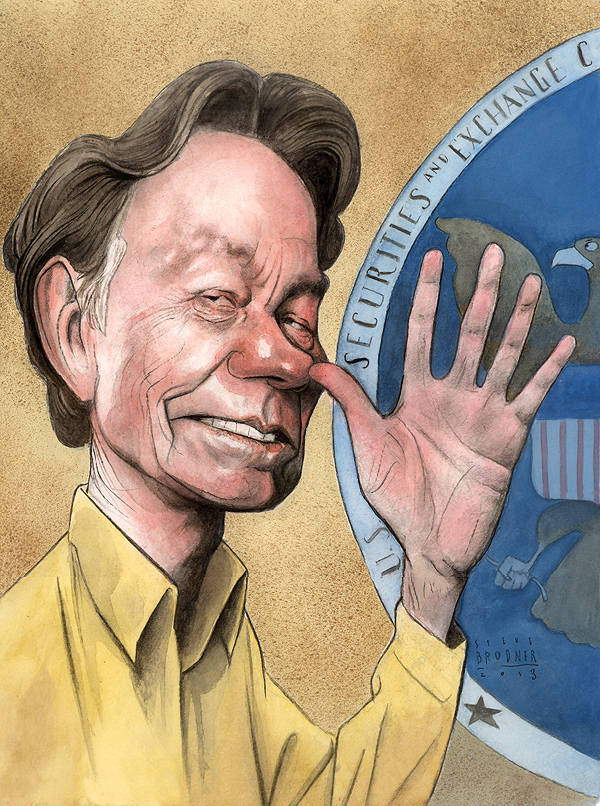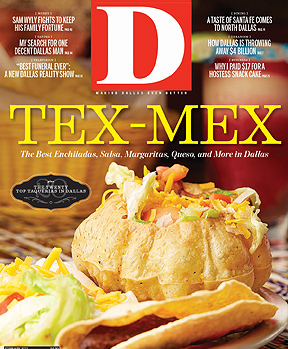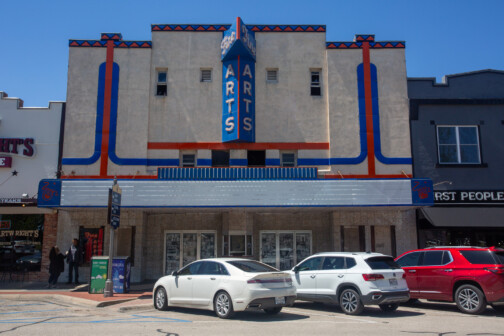Sam’s attorney, Bill Brewer, says the Wylys didn’t exercise any undo control over their many, many trusts. That’s why he doesn’t disagree with the facts in the case as the SEC sees them. The Wylys did put millions of shares of stock in the hands of trustees in the Isle of Man, and they did ask those trustees to do things such as buy Sam’s wife, Cheryl, a $622,000 ruby and Charles’ wife, Dee, a $759,000 emerald necklace and, in May 2002, Norman Rockwell’s original Rosie the Riveter painting for $4.96 million—the highest price ever paid for a Rockwell. If you’re ever in Bentonville, Arkansas, you can go see it. In 2009 the painting was sold by the Wylys, for an undisclosed price, to the Crystal Bridges Museum of American Art, which was founded by Alice Walton, daughter of Sam’s business hero, Sam Walton.
You can read all about those kinds of transactions, dozens of them, in the Senate subcommittee’s 2006 report, “Tax Haven Abuses: the Enablers, the Tools, and Secrecy.” Of the report’s 370 pages, 217 were devoted to the Wylys’ offshore system. On Capitol Hill one early spring day in 2011, when Charles was still alive, I spoke with someone close to the subcommittee’s investigation who told me that the Wylys’ system was “amazing in its breadth and complexity.” The SEC uses similar language.
But Brewer says the system was “de rigueur” and says you can get an “off-the-shelf primer” that shows nearly an exact overlay of what the Wylys set up. To prove his point, he
sends me a copy of the American Bar Association’s 543-page Asset Protection Strategies: Planning With Domestic and Offshore Entities, Volume 1, which does, indeed, describe establishing trusts that resemble the Wylys’. That book was published in 2002, a decade after the Wylys started their offshore trusts. It’s not a stretch, then, to say that the Wylys wrote the book. Or at least they pioneered the process on which the book was based.

Tedder, the first attorney to help the Wylys avoid taxes (he later went to prison for unrelated fraud charges), told Sam and Charles from the very start that swapping their shares in Michaels and Sterling Software for annuities was “rather novel.” But Sam has a long history of masterminding novel financial plans. It was Sam, after all, who first built Sterling Software into a multibillion-dollar giant by buying up competitors, teaching himself the art of the hostile takeover in the process. It was Sam who opened what became the $8 billion Maverick Capital hedge fund at the start of the 1990s bull market, and who founded power reseller Green Mountain Energy even before power deregulation happened in Texas. It was Sam who established a forerunner to the internet with his Datran company, which in the early 1970s got computers talking to each other through a series of microwave towers. Actually, forget the internet. What Sam Wyly was doing in the era of bell-bottoms and polyester was pioneering the wireless internet. And it was also Sam who was, and still is, a supporter of junk bond king Michael Milken. In his autobiography, 1,000 Dollars and an Idea, Sam calls Milken, who was sent to prison for securities reporting violations, “a brilliant guy,” insisting, “The world owes a debt of gratitude to Mike Milken and his creative team.” Certainly the Wylys do. Their $6 billion deal to sell Michaels Stores—a chain they bought when it had just six stores and that eventually expanded to more than 1,000—was leveraged with $4 billion in the very kind of junk bonds that Milken popularized.
So novel offshore trusts didn’t scare Sam Wyly. Charles went along, too. To begin, they followed Tedder’s basic model. They set up three trusts, named Bulldog, for the mascot of Sam’s alma mater, Louisiana Tech University; Pitkin, for the Colorado county that’s home to Aspen; and Tallulah, for the crosstown rivals of Delhi High School, where Sam and Charles won the state football title in 1951. Had they stopped there, had they never ventured beyond Tedder’s initial advice, the SEC might never have gotten involved. But once they were through the loophole in the U.S. tax code, Sam and his army of lawyers got to work expanding it.
What started with a handful of trusts and shell corporations grew until it reached 58 (although they weren’t all operating simultaneously). That large number allowed the Wylys to spread their stock holdings to dozens of different trusts. That’s where the SEC’s problems with the Wylys begin. Though each trust held just a small percentage of shares in Michaels and Sterling, all the trusts combined held a significant portion of the outstanding stock in the companies. At their peak, the trusts held 36.7 percent of Michaels and 33.7 percent of Sterling Software, the SEC says. Normally, that would mean the Wylys would have to report each and every transaction they executed in those stocks, because SEC disclosure rules require corporate directors to declare any trading activity if they hold more than 5 percent of their company’s shares. But since the Wylys didn’t, in their view, own the shares held by the trusts, they didn’t make those disclosures. Hundreds of times over, for stock holdings worth tens of millions of dollars, they didn’t make those disclosures.
Was that an attempt to dupe the regulators and investors in the companies, or was it simply a brilliant asset protection strategy? A court will eventually, someday, perhaps decide that. In any case, Charles Wyly died believing that all of the allegations against him and his brother were “almost embarrassing.”
It was Charles, not Sam, who served as the Wylys’ public face, both in charitable and political giving. He was soft-spoken and less defiant than his brother. He was also more wounded by the tenor of the SEC’s allegations. “When the government comes down on you, you feel the shock of it,” Charles told me in May of 2011. “For the government to develop a theory that we intended to do something wrong just goes against the core basis on which we have operated. Sam and I were really leaders in good corporate governance. We really strived to have good board procedures. And legal compliance is right up there with good governance. They may be looking back in hindsight and constructing a theory that there was something malicious about it all, but they’ll realize there was not. We never intended to cross any line.”
That’s the key. Again, as Brewer says, “The battleground here is over intent.”
The SEC doesn’t want devious corporate directors to be able to hide their holdings in their company’s stock overseas, where regulators and investors won’t know what’s being done with it. That’s not new. But with this case, the SEC reaches further. It hopes this case can expand the definition of what is “material” when it comes to the actions of corporate directors. “Materiality,” roughly defined, is information that might matter to an average investor, information that might make that investor buy or sell shares if he learns the information when the directors of a company know it. Insider trading cases are built on “material” matters.
And the insider trading charge the SEC has levied against the Wylys suggests the brothers decided to sell the company and then went out and quietly bought up millions of shares in Sterling Software through their offshore trusts. The Wylys contend their Sterling purchases came months before the company’s board even discussed a sale or hired an investment bank to explore if one were feasible. And, therefore, the Wylys say their decision to sell the firm before they bought all that stock was immaterial. Because, after all, why would an investor care what the Wylys thought if they hadn’t acted on those thoughts?
The SEC thinks otherwise. “If I think a company should be taken over, who cares?” Wayne State’s Henning says. “But if I’m the CEO or the chairman of the board, people do care. But is everything material? To describe materiality as a gray area frankly overestimates the clarity of the law. It’s much murkier than gray. And this case could make it even less clear.”
Indeed, even the judge in the case has called the SEC’s attempt to redefine materiality in this case a “novel” concept.
The tone of the $550 million lawsuit wasn’t the only thing that bothered Charles. He was also disappointed that this case, and the Senate subcommittee investigation before it, had made Wyly money worthless in Washington. The brothers had spent three decades not only as top donors themselves but as donors who could rally others to the Republican cause. Then they became outcasts. John McCain returned $20,000 the brothers gave him for his 2008 presidential campaign, and Democrats called on others to do the same. So the Wylys stopped donating directly to candidates. “I didn’t want to give a sense that we were trying to influence people in our favor,” Charles told me. “We also didn’t want to do anything that might be embarrassing to any office holders. We weren’t prohibited from doing it. It just seemed like good manners not to.”
For Sam, though, it wasn’t just good manners. It was also a lack of interest.
“I had really sort of enjoyed the political stuff,” Sam says. “I enjoyed having dinner at the White House. But after a while, we’d done that. I’d had dinner at the White House. My kids had had dinner at the White House. I’d done it. But, mostly, I didn’t much care anymore. I didn’t want to make a plane trip out to Washington again.”
There are more than a few people in Washington who would be thrilled to hear that. The Wylys came to be reviled among some Democrats for their big-money support of successful GOP candidates and, especially, for the cash they put into two sets of attack ads. In 2000, at a critical moment in the Republican primaries, Sam funded Republicans for Clean Air, a group that was pretty much just him. He spent $2.5 million on TV ads assailing McCain’s environmental record and praising George W. Bush’s green bona fides. Four years later, both Sam and Charles were among the donors to Swift Boat Veterans for Truth, the group that questioned Democratic presidential nominee John Kerry’s war record. “The Wylys put a target on their back the minute they tried to kill McCain’s campaign,” one Democratic Congressional staffer who was close to the Senate subcommittee told me. “And when they tried to kill John Kerry’s candidacy, people started talking about payback.”
The SEC declined official comment, beyond pointing to the case filing itself. But one SEC source denies any connection between the case and the Wylys’ politics. “The SEC is not a political hit squad,” the source says.
No matter. Sam still believes that politics played a role in the SEC’s bringing the case six years after it opened an investigation and 18 months into Obama’s presidency. “But,” Sam says, “I think after a while it’s just a bureaucracy thing, and it continues on its own weight. The names on the case file may change, but the case continues.”
That statement bolsters Sam’s claim that he’s not paying close attention to developments in the case against him. Both officials who conducted the investigation into the Wylys’ offshore network, Martin Zerwitz and James Lee Buck, who is a deputy assistant director of the commission, are still with the SEC. And Zerwitz is still active in trying the case. His name was on the motion that the judge granted in January of last year to add Charles Wyly as a defendant. Suing a dead man is a first-of-its-kind move in an SEC case, says Thomson Reuters legal columnist Alison Frankel, who dubbed it “zombie litigation.”
But most of what has been written about the Wylys in the wake of the SEC suit has not been as friendly to the brothers. Barry Ritholtz, a Washington Post columnist who is one of the country’s top economic and business commentators, said of the Wylys, “If there are two bigger scumbags in the state of Texas, I am unfamiliar with them.”
Surely Sam is bothered by those kinds of things that have been said and written about him and his brother. Right? Well, no.
“I learned at about 17, when I was running for class president and somebody was bad-mouthing me that you really can’t be bothered by what other people are chatting about,”
Sam says. “I realized then that I can’t control what other people say. So I just won’t be offended. I’ll just let it go by.”
And what about the stain that this case has left on Charles’ legacy? How will people now see that theater in the Dallas Arts District that bears his and his wife’s names, the one they donated $20 million to build? Sam thinks about it for a second. He can launch into a lengthy story about a photograph he just found that dates to 1960, when he lived in an apartment on Abbott Avenue and was a neighbor of Jack Ruby’s. But the question about his brother leaves him with little to say.
“I just always had trouble with the legacy question,” Sam says, doing his hair flip thing. “You just do the things you like to do. And I’m proud of the things we’ve done.”
Write to [email protected].






